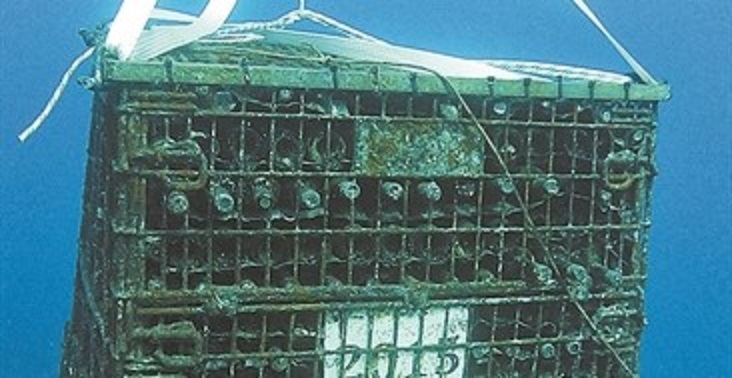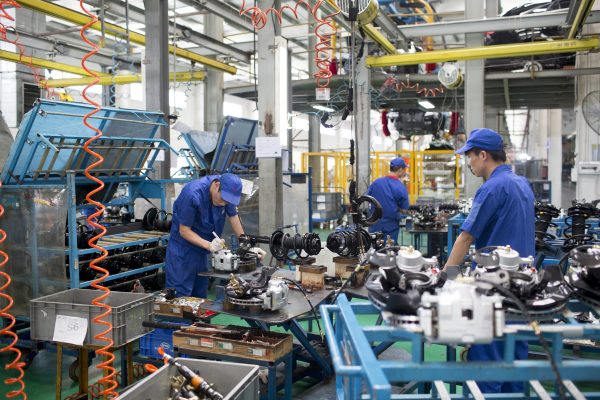
Organized underwater parks for aging wine bottleswill now exist in Greece, as the Ministry of Development and Investments is promoting the relevant regulatory framework by formulating the rules for their operation.
The aging of this form, which is growing internationally, was inspired by the condition of wines that have been found and recovered from shipwrecks. Many around the world wanted to take advantage of the cool environment of the sea – although aging in this way comes at a cost.
In Greece, the first attempts were made in 2009 and since then others have followed in Crete, Halkidiki, Kefalonia, Santorini, but without an institutional framework for this specific activity. Now the conditions have matured and the legislative framework of the ministry that is coming also provides for the operation of the regional wine aging marine parks, as well as their tourist exploitation.
The new framework concerns, among other things, the licensing process, the determination of the point of bottling, as well as the control and labeling of wines after the aging process is completed and is expected to be submitted to the Parliament in February. It will define as “submarine irrigation” the immersion within the Greek littoral zone at a depth between 10 and 50 meters from sea level.
A permit must be issued by the regionally competent Directorate of Agricultural Economy and Veterinary Medicine (DAOK) for wine bottles for aging. Wines aged for at least 1 year may be labeled “aged in the sea water” or “aged underwater”/”veilli dans la mer”, necessarily accompanied by the total aging period. The provisions of the law prohibit the pouring of wine in a marine area in which activities, projects or areas of public interest may be obstructed in any way.
The wines will be racked up in metal cages while the bottles will be counted and the cage will be sealed with a waterproof seal of the competent Directorate and will be scored at the designated scoring point. The scoring areas will be demarcated around the perimeter, with yellow buoys in accordance with the instructions of the Lighthouse Service, at the expense of the company concerned. In fact, an administrative fine of 5,000 to 10,000 euros is provided for the wrongful fulfillment of the above obligations by the wine company, as well as the revocation of the winemaking license.
Latest News

New Exposé by Domumento Reveals Nefarious Triangular Link of ‘Black Money’ with New Democracy, Blue Skies, & Truth Team
The latest exposé by the Documentonews.gr news site lays bare what appears to be a surreptitious path of indirect financing of ND through the business sector—transactions that, as widely understood, rarely occur without expectations of reciprocal benefit

PM Meloni Meets Vice President Vance in Rome Signalling Optimism on Ukraine Talks
Meloni emphasized the strength and strategic value of the Italy-U.S. partnership.

Airbnb: Greece’s Short-Term Rentals Dip in March Amid Easter Shift
Data from analytics firm AirDNA shows that average occupancy for short-term rentals dropped to 45% in March, down from 49% the same month last year.

Easter Week in Greece: Holy Friday in Orthodoxy Today
At the Vespers service on Friday evening the image of Christ is removed from the Cross and wrapped in a white cloth

Meloni and Trump Meet in Washington, Vow to Strengthen Western Ties
“I am 100% sure there will be no problems reaching a deal on tariffs with the EU—none whatsoever,” Trump stressed.

ECB Cuts Interest Rates by 25 Basis Points in Expected Move
The ECB’s Governing Council opted to lower the deposit facility rate—the benchmark for signaling monetary policy direction—citing an updated assessment of inflation prospects, the dynamics of underlying inflation, and the strength of monetary policy transmission.

Current Account Deficit Fell by €573.2ml Feb. 2025: BoG
The improvement of Greece’s current account was mainly attributed to a more robust balance of goods and, to a lesser extent, an improved primary income account

Hellenic Food Authority Issues Food Safety Tips for Easter
Food safety tips on how to make sure your lamb has been properly inspected and your eggs stay fresh.

Greek Kiwifruit Exports Smash 200,000-Ton Mark, Setting New Record
According to data by the Association of Greek Fruit, Vegetable and Juice Exporters, Incofruit Hellas, between September 1, 2024, and April 17, 2025, kiwifruit exports increased by 14.2%.

Easter Tourism Boom: Greece Sees 18.3% Surge in Hotel Bookings
Among foreign markets, Israel has emerged as the biggest growth driver, with hotel bookings more than doubling—up 178.5% year-on-year.







![Πλημμύρες: Σημειώθηκαν σε επίπεδα ρεκόρ στην Ευρώπη το 2024 [γράφημα]](https://www.ot.gr/wp-content/uploads/2025/04/FLOOD_HUNGRY-90x90.jpg)





![Airbnb: Πτωτικά κινήθηκε η ζήτηση τον Μάρτιο – Τι δείχνουν τα στοιχεία [γράφημα]](https://www.ot.gr/wp-content/uploads/2024/07/airbnb-gba8e58468_1280-1-90x90.jpg)











![Επιχειρήσεις: Με τι επιτόκιο δανείζονται – Πώς θα ξεκλειδώσει περισσότερη ρευστότητα [γράφημα]](https://www.ot.gr/wp-content/uploads/2025/04/daneia-trapezes-768x432-1-600x338.jpg)














 Αριθμός Πιστοποίησης
Αριθμός Πιστοποίησης